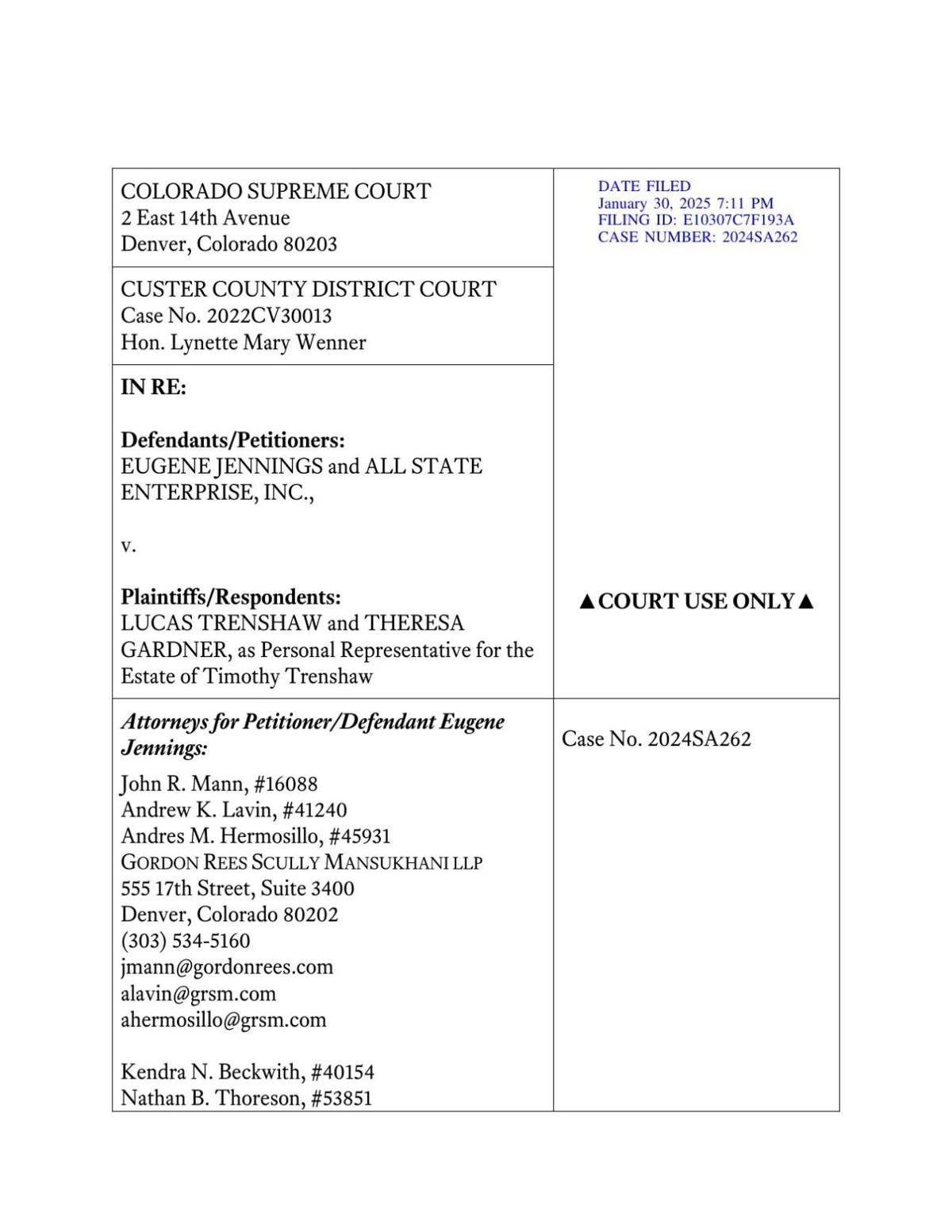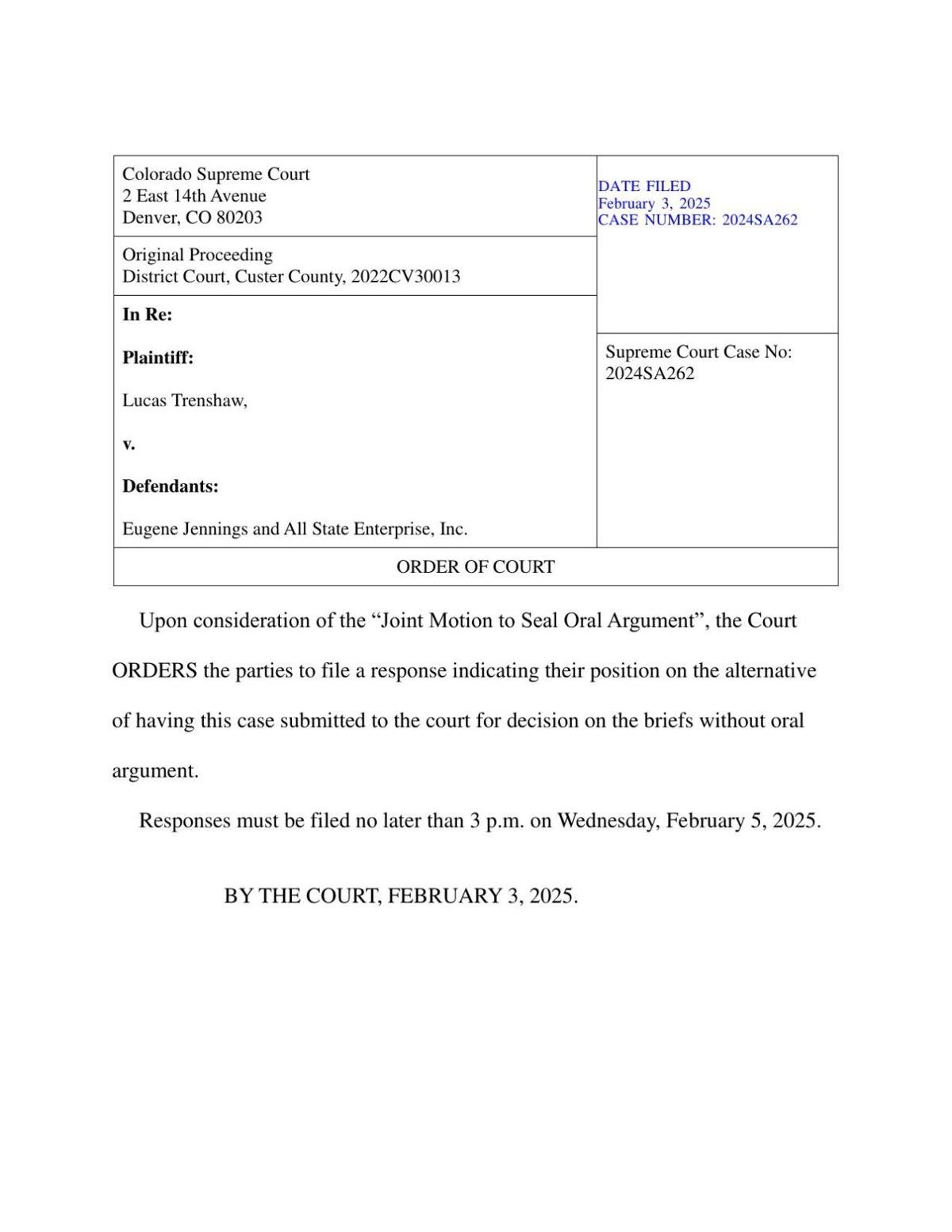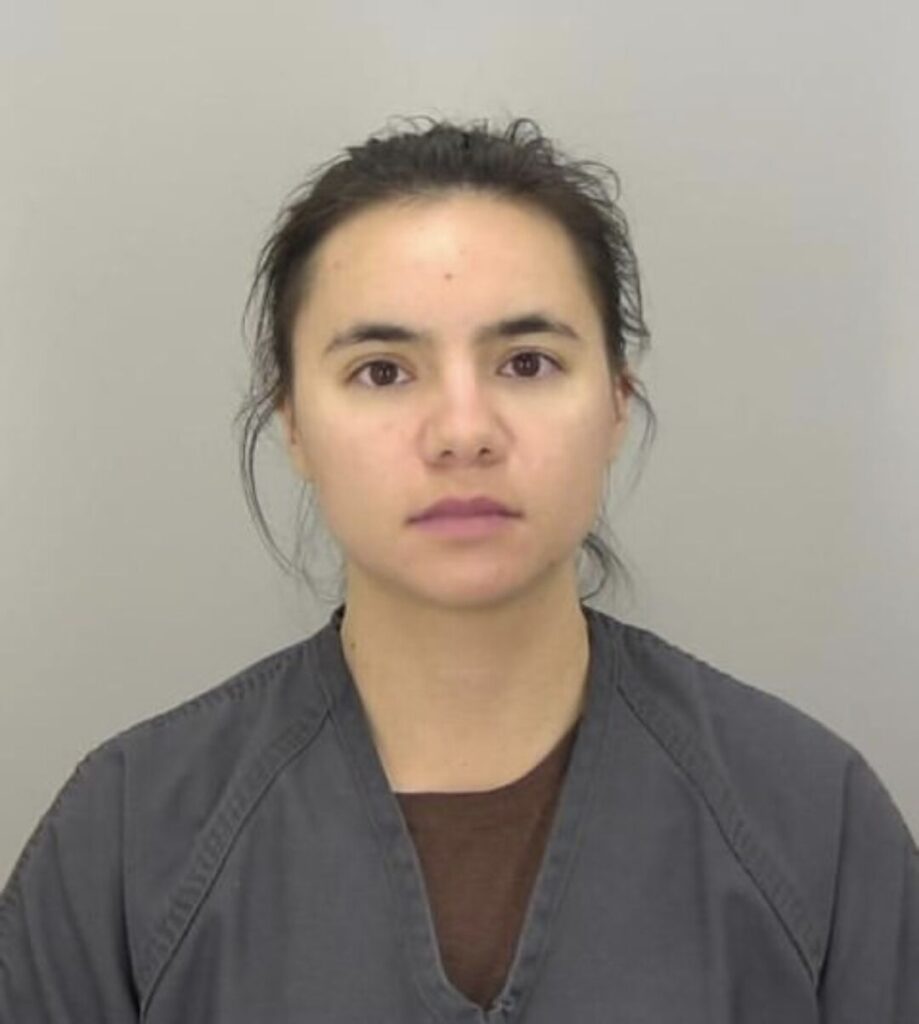Is Colorado’s Supreme Court about to hold oral arguments in secret?
The Colorado Supreme Court may take the rare, potentially unprecedented move of holding oral arguments in secret next week, after the parties to a civil case have asked that members of the public be excluded from viewing the proceedings.
On Feb. 12, the justices are scheduled to hear Jennings v. Trenshaw, a personal injury case out of Custer County. The question on appeal is the extent to which the defendant’s medical records are protected by physician-patient confidentiality.
Last week, both parties took the unusual step of jointly asking the Supreme Court to exclude everyone but the attorneys from the courtroom.
“Sealing oral argument is necessary to enable the parties to argue their respective positions and for the Court to ask fulsome questions, without risking public disclosure of this information,” wrote the attorneys from both sides. They noted their trial judge had taken steps to shield allegedly confidential information from public view, and they had already submitted written briefs with redactions to the Supreme Court.
“These efforts to prevent public disclosure of the information that Mr. Jennings claims is privileged would be futile if oral argument is open to the public,” the motion continued.

Lawyers who have argued cases to the Supreme Court said they understood the desire to exclude the public from certain proceedings, but they stopped short of endorsing the request in the Jennings appeal.
“It’s rare, but if the only way to protect confidential information is to close the courtroom, it can happen. I’ve seen this in appeals involving minors. And in the trial courts, it happens with some frequency to protect trade secrets and other confidential information,” said Frederick R. Yarger, Colorado’s former solicitor general. “I don’t know enough about this case to tell you whether or not the request here is legitimate. But while rare, I can’t say that it’s completely out of the ordinary.”
“I’ve not heard of a similar situation — particularly in the relatively mundane area of physician-patient privilege,” added civil litigator Sean Connelly. “I cannot imagine a compelling enough reason to close a public courtroom to argue about private parties’ privilege.”
The Supreme Court has signaled the justices may also be unconvinced of the need for total secrecy. On Monday, the court issued an order asking the parties to explain whether they would rather bypass oral arguments entirely and receive a decision on the written briefing alone. The parties have a deadline of Wednesday afternoon to respond.

John Suthers, who was Colorado’s attorney general from 2005-2015, said he was unaware of the public ever being barred from viewing oral argument on appeal.
“There is a strong presumption in favor of open public proceedings. The order would indicate that the court is also skeptical of the request,” he said.
‘A real and substantial interest’
Recently, the Denver-based U.S. Court of Appeals for the 10th Circuit agreed to close its courtroom for an oral argument. The case, United States v. Vontress, was a criminal appeal out of Kansas in which the defendant originally asked to seal his opening brief.
His lawyer, Katayoun A. Donnelly, wrote that she learned for the first time on appeal that a co-defendant and a witness at trial had plotted to kill her client. As a result, Donnelly was concerned about her client’s safety and that of his family.
The 10th Circuit, in response, asked Donnelly and the government what would happen to the oral arguments if the court were to grant her motion.
“Any party asserting that the oral argument in this matter should be sealed must articulate a real and substantial interest that justifies depriving the public of access to the oral argument,” warned the court.
After the circuit continued to express doubts that information “might be revealed to his codefendants that would exacerbate the danger,” Donnelly responded that her client, if successful on appeal, would be in a position to cooperate with the government and increase the risk he would be attacked.
The three judges hearing the case — Scott M. Matheson Jr., Gregory A. Phillips and Nancy L. Moritz — agreed they would clear the courtroom and refrain from live streaming the arguments in November 2023.
One year later, a collection of media organizations, including the Colorado Press Association and the Colorado Freedom of Information Coalition, petitioned to unseal the case, arguing it deprived them of their right to “observe and scrutinize the criminal judicial process.”
“Judges deliberate in private but issue public decisions after public arguments based on public records,” read a 2006 opinion of the Chicago-based Seventh Circuit, which the petitioners quoted. “The political branches of government claim legitimacy by election, judges by reason. Any step that withdraws an element of the judicial process from public view makes the ensuing decision look more like fiat and requires rigorous justification.”
After the government and the defendant expressed no objection, the 10th Circuit panel lifted the seal on most of the case, including the argument recording.
No recent precedent
Although the motion to seal the Vontress case cited other instances where the 10th Circuit had closed off public access, the lawyers in the Jennings case did not indicate anything similar had ever happened at the Colorado Supreme Court.
The attorneys did not immediately respond to questions from Colorado Politics. The clerk of the Supreme Court said she could not remember an oral argument being sealed during her eight years in the position.
Morris B. Hoffman, a retired Denver District Court judge, said it was logical to be concerned that an appeal about confidentiality can become moot if the confidential information is aired publicly at oral arguments.
“But I do not recall any particular case where either the Court of Appeals or Supreme Court restricted access to oral arguments,” he said.
Gabe Roth, executive director of the advocacy group Fix the Court, said he was aware of similar closed-door proceedings happening in the D.C. Circuit, which hears cases implicating national security.
“I can imagine it might be awkward to have certain medical information being discussed in court, but I wouldn’t go so far as to vouch for zero public access here,” he said, referring to the Jennings case in Colorado. “And I would imagine there’s an agreement that can be reached prior to the argument regarding how to talk about sensitive information.”












